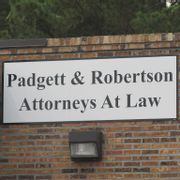What's the Difference Between Chapter 7 & 13 Bankruptcies?

When mounting debt becomes overwhelming, filing for bankruptcy may be an option to find relief. There are two main options for individuals: Chapter 7 and 13. While a bankruptcy lawyer can help you determine which one is right for you, here's a closer look at the specific differences of each one.
Chapter 7 Bankruptcy
Chapter 7 bankruptcy discharges most unsecured debts, reducing all liability. These items include medical bills, personal loans, and credit card debt. However, child support, alimony, and tax bills are excluded in both Chapter 7 and 13.
To cover approved debts, the court requires the liquidation of valuable property. Necessities, like a primary residence, are usually considered exempt up to a specific value, allowing you to keep them. Non-exempt property, such as second vehicles and investments, are liquidated and distributed among the creditors.
Not everyone can file for Chapter 7 bankruptcy. The eligibility requirements include an annual income restriction — usually at or below the state median. If you make more than that, then a bankruptcy means test is required.
As long as you qualify, you can expect the entire process to only take three to four months. Once the official paperwork is filed, it puts a stop to all collection processes and wage garnishments. Afterward, a credit score drop is typical, and the bankruptcy stays on the report for 10 years.
Chapter 13 Bankruptcy
 If you don't meet the eligibility requirements of Chapter 7, your bankruptcy lawyer may recommend Chapter 13. This option doesn't have tight income restrictions. However, your debt liability isn't automatically erased. Instead, the court reorganizes it into one, digestible payment based on what you can afford.
If you don't meet the eligibility requirements of Chapter 7, your bankruptcy lawyer may recommend Chapter 13. This option doesn't have tight income restrictions. However, your debt liability isn't automatically erased. Instead, the court reorganizes it into one, digestible payment based on what you can afford.
The repayment process lasts anywhere from three to five years, and any remaining debt is discharged at the end. Both unsecured and secured debts, like mortgages, can be included in Chapter 13 bankruptcy. In fact, filing can halt the foreclosure process, allowing you to begin standard payment amounts once again and make up any arrears in the repayment process.
Chapter 13 also lowers credit scores, but it only stays on your history for seven years. It may also not have as much impact when being reviewed by creditors in the future during your score-rebuild journey.
If you're feeling overwhelmed by debt, reach out to Padgett & Robertson, Attorneys at Law to review your options. The local law firm has provided dependable guidance and representation to residents across Mobile County, AL, for over 35 years. Review their experience online, and call (251) 342-0264 to schedule a consultation.
No representation is made that the quality of legal services to be performed is greater than the quality of legal services performed by other lawyers. We are a debt relief agency. We help people file for bankruptcy relief under the Bankruptcy Code.
About the Business
Have a question? Ask the experts!
Send your question

